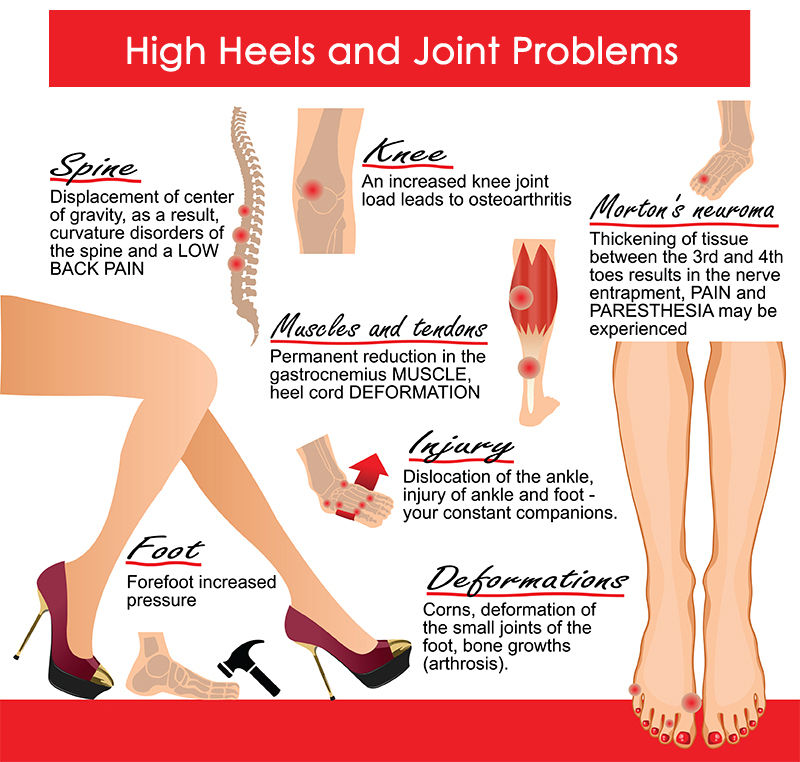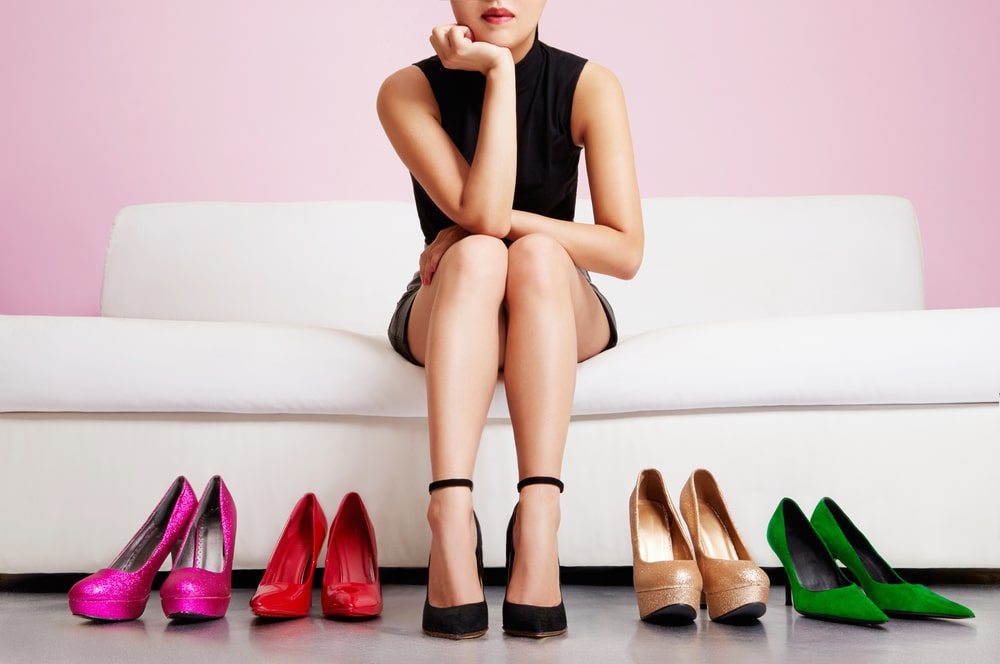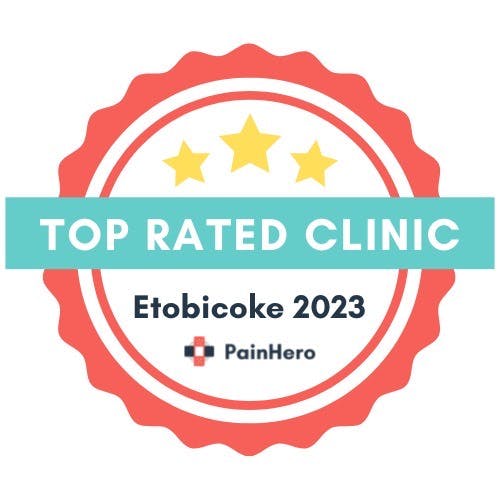👠 The Real Cost of Wearing High Heels: What Every Woman Should Know
Stylish, sleek, and confidence-boosting—high heels are a fashion favorite. But at what cost to your health?
-Stuti Punshi

🚨 The Problem with High Heels
High heels are a timeless symbol of elegance and style. Whether it’s for work, a night out, or a formal event, they’ve become a go-to fashion staple for many women. But beneath the allure lies a hidden danger: wearing high heels regularly can take a serious toll on your body—especially your feet, knees, hips, and spine.
At Complete Care Physiotherapy in Etobicoke, we often see patients with pain and injuries that are either caused or worsened by improper footwear, especially high heels. This article explores how heels affect your body, the conditions they can cause, and what you can do to stay stylish and pain-free.
High heels may elevate your outfit, but they also elevate your risk for a variety of physical problems—especially if worn regularly. From chronic foot pain to long-term postural issues, the dangers often go unnoticed until pain becomes persistent.
👣 How High Heels Affect Your Body
High heels shift your body weight forward onto the balls of your feet. While this posture may make you look taller and more poised, it’s not how your body is naturally designed to stand or walk.
To compensate for this imbalance, your lower back arches more, your knees remain slightly bent, and your muscles have to work harder to maintain balance. Over time, this unnatural alignment can lead to structural problems, discomfort, and chronic pain.
🩺 Common Physiotherapy Conditions Linked to High Heel Use

We regularly treat a range of conditions that stem from or are aggravated by prolonged high heel use. Here’s a closer look:
1. Plantar Fasciitis
Wearing heels causes tightness in the calf muscles and Achilles tendon, which increases tension on the plantar fascia—the ligament that supports the arch of your foot. This can lead to plantar fasciitis, a painful condition that causes stabbing heel pain, especially in the morning or after sitting.
2. Achilles Tendinitis
The shortened heel-to-ground distance in high heels places constant strain on the Achilles tendon. This can lead to inflammation or micro-tears in the tendon, especially if the person frequently switches between heels and flat shoes.
3. Forefoot Injuries: Bunions & Hammertoes
High heels with narrow, pointed toes squeeze the front of the foot unnaturally, increasing the risk of:
-
Bunions – A bony bump that forms at the base of the big toe
-
Hammertoes – A deformity where toes are bent in a claw-like position
These deformities can become permanent and painful, often requiring medical treatment or even surgery in severe cases.
4. Knee Pain & Early Osteoarthritis
Heels push the body forward, forcing the knees to absorb more pressure. This altered gait pattern can increase wear and tear on the knee joints and may contribute to early-onset osteoarthritis.
5. Lower Back Pain
Your spine’s alignment is disrupted when you wear heels. To stay balanced, the lumbar spine hyperextends, placing extra stress on the lower back muscles and discs. Over time, this can lead to chronic lower back pain and spinal disc problems.
6. Balance Issues & Increased Fall Risk
The higher the heel, the more unstable your footing. High heels significantly increase the risk of ankle sprains, falls, and even fractures, especially for older adults.
✅ Pros and ❌ Cons of Wearing High Heels

✅ Pros:
-
Aesthetic Appeal: Elongates the legs, enhances posture, and boosts confidence.
-
Style: Complements formal and business attire.
-
Occasional Use: When worn occasionally, heels may not lead to major problems, especially if you’re already physically active and balanced.
❌ Cons:
-
Muscle Imbalance: Heels force some muscles to overwork while others weaken.
-
Joint Stress: Increased strain on the knees, hips, and lower back.
-
Postural Misalignment: Compromises spinal and pelvic alignment.
-
Chronic Pain: Long-term use can lead to permanent foot and postural issues.
-
Decreased Shock Absorption: Heels reduce the natural shock absorption that flat feet and proper walking provide.
👟 Safer Alternatives to High Heels
Fashion doesn’t have to hurt. Consider these alternatives to minimize the risk of injury:
-
Low Heels (under 2 inches): Provide elevation without excessive pressure.
-
Wedges: Offer more surface area for weight distribution.
-
Chunky Heels: More stable and supportive than stilettos.
-
Supportive Flats: Choose flats with proper arch support and cushioning.
-
Custom Orthotic Insoles: Add support and alignment correction to any shoe.
-
Comfort Shoe Brands: Vionic, Clarks, Naturalizer, Ecco, and others design stylish footwear with health in mind.
If heels are a must for you, alternate between them and supportive shoes throughout the day, and avoid wearing them on days when you’ll be walking or standing for long hours.
💡 How Physiotherapy Can Help

If you’re already feeling the effects of wearing heels, physiotherapy offers safe and effective treatment. At Complete Care Physiotherapy, our experienced team uses evidence-based techniques to reduce pain, improve posture, and restore function.
Our Services Include:
-
Gait & Posture Assessment: Analyzing how you walk and stand to identify imbalances.
-
Manual Therapy: Hands-on treatment to release tight muscles and mobilize joints.
-
Custom Orthotics: Personalized insoles that correct alignment and provide support.
-
Stretching & Strengthening Exercises: Especially for the calves, glutes, core, and feet.
-
Modalities: Such as laser therapy, ultrasound, or IFC for pain and inflammation.
-
Patient Education: Guidance on proper footwear, foot care, and daily habits.
🧠 Expert Advice for High Heel Wearers
If you’re not ready to ditch your heels completely, here are our top tips:
-
Limit Daily Use: Don’t wear high heels for more than a few hours at a time.
-
Stretch Daily: Focus on calves, hamstrings, and plantar fascia.
-
Switch Shoes Throughout the Day: Keep a pair of comfortable flats handy.
-
Use Gel Cushions or Inserts: Reduce pressure and absorb shock.
-
Choose Shoes with Wider Toe Boxes: Avoid squeezing your toes.
-
Strengthen Your Feet & Ankles: Prevent injuries and maintain mobility.
📍 Visit Us in Etobicoke for Pain Relief & Foot Health
You don’t have to live with pain—and you don’t have to give up style either. If high heels are taking a toll on your body, let us help you find relief and restore balance.
🏥 Complete Care Physiotherapy
📍 3857 Lake Shore Blvd W., Etobicoke, ON
📞 Call: 647-496-7065
📧 Email: completecarels@gmail.com
🌐 Visit: www.completeccare.ca
👣 Your body deserves better than chronic pain.
Book your physiotherapy assessment today. Walk taller, comfortably.



